Former Nike Exec: Run Gum Suit Won't Greatly Impact Track & Field
Former Nike Exec: Run Gum Suit Won't Greatly Impact Track & Field
The lawsuit filed by Run Gum and co-founder Nick Symmonds against the USOC and USATF seeking to allow non-apparel sponsors advertising rights at the Olympic
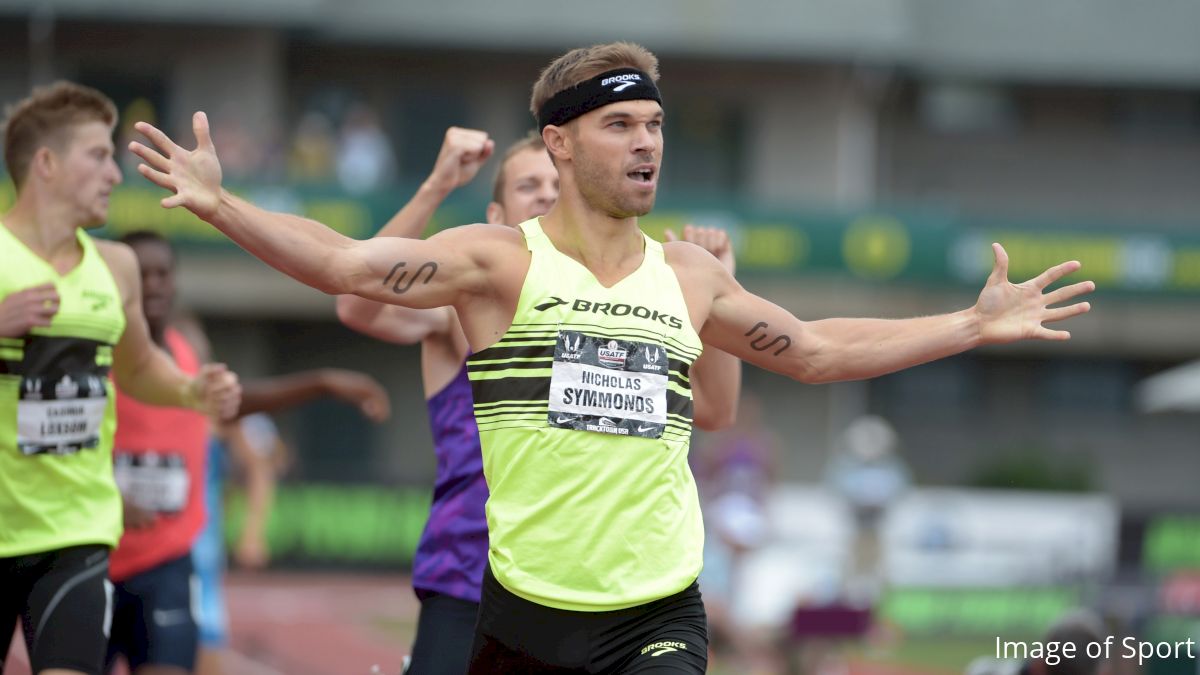
The lawsuit filed by Run Gum and co-founder Nick Symmonds against the USOC and USATF seeking to allow non-apparel sponsors advertising rights at the Olympic Trials will not change the sport, according to a former shoe and apparel executive.
Josh Rowe, who served as a senior manager at Nike from 1998-2004 and New Balance from 2009-2014 and host of the Athletics Podcast, said companies do not rely on logo exposure at the U.S. Olympic Trials because a single two-week event once every four years does not provide lasting return on the investment.
“As a marketing person, I’m investing in the sport,” Rowe told FloTrack on the phone Wednesday. “If I’m relying on the Olympic Trials race to deliver my value from my investment dollar, that’s a very, very short-sighted investment. There’s so much more to be involved in athlete marketing than a single race. If you’re relying on a single race to deliver value, you’re already in trouble.”
Sponsors, of course, are banking on their athletes to perform well at the Trials and the Olympic Games, the two highest profile events during the quadrennium, but are executing most of their promotional planning across video and print strategies leading up to those events.
“So even if I’m New Balance [A smaller company compared to Team USA’s primary sponsor Nike], yes of course I want my logo to have exposure at the Trials," Rowe said, "But that logo on the track for those 10 or 15 minutes, or 10 seconds in the 100m, that’s icing on the cake. I need to bake the cake first.”
Rowe wants to see more diversity on the track, and noted that most major apparel companies do not care if a non-apparel sponsored athlete was sporting Run Gum on their uniform, just so long as they were abiding by the same uniform rules that all apparel companies must follow. “Patching,” however, the act of putting a second logo on an existing company’s jersey, does reduce the value of the sponsor’s initial investment.
In his exclusive interview with FloTrack, Symmonds expressed his belief that the inability for non-apparel companies to display logos at the Trials is dissuading non-endemic sponsors to invest in the sport of track and field. Rowe, however, disagrees.
"If a big money sponsor came into the sport, I’m sure USATF would listen to them and figure out how to make things work,” Rowe said.
“I think USATF, USOC would certainly look at policies in place at a certain price level. The sport needs money to survive. And if somebody came in with a massive donation and said, 'Ok how can we get this sponsor involved in the sport?' They would certainly have a conversation to get their company involved.”
Bottom line? Rowe thinks for the amount of time an athlete is featured on television screens during the U.S. Olympic Trials, logo exposure isn’t “making or breaking” any decisions about companies investing in the sport or not.
“If a company is making a decision whether to invest in the sport or not based on the Olympic Trials, there are much more important decisions to make,” Rowe said. “I can’t imagine there’s a company that would say, 'I’m not going to invest in the sport because I can’t have logo exposure in this event.' Logo exposure is going to be [visibility of] a matter of seconds, minutes at the most."
Though he doesn’t believe it will change the sport, Rowe is sympathetic to the spirit of Symmonds' and Run Gum's lawsuit idea and said he would change the rule if he could.
“I understand that this rule limits athlete’s earning potential," Rowe said. "And so I understand where Nick is coming from and that the USOC or USATF is limiting athletes’ ability to potentially earn sponsors if sponsors want logo exposure on the athlete," Rowe said.
"I want that [allowing non-apparel companies to sponsor athletes] to not encroach on my rights that I already bought. But if other sponsors came in and didn’t encroach on those rights I would encourage it," he added.
Josh Rowe, who served as a senior manager at Nike from 1998-2004 and New Balance from 2009-2014 and host of the Athletics Podcast, said companies do not rely on logo exposure at the U.S. Olympic Trials because a single two-week event once every four years does not provide lasting return on the investment.
“As a marketing person, I’m investing in the sport,” Rowe told FloTrack on the phone Wednesday. “If I’m relying on the Olympic Trials race to deliver my value from my investment dollar, that’s a very, very short-sighted investment. There’s so much more to be involved in athlete marketing than a single race. If you’re relying on a single race to deliver value, you’re already in trouble.”
Sponsors, of course, are banking on their athletes to perform well at the Trials and the Olympic Games, the two highest profile events during the quadrennium, but are executing most of their promotional planning across video and print strategies leading up to those events.
“So even if I’m New Balance [A smaller company compared to Team USA’s primary sponsor Nike], yes of course I want my logo to have exposure at the Trials," Rowe said, "But that logo on the track for those 10 or 15 minutes, or 10 seconds in the 100m, that’s icing on the cake. I need to bake the cake first.”
Rowe wants to see more diversity on the track, and noted that most major apparel companies do not care if a non-apparel sponsored athlete was sporting Run Gum on their uniform, just so long as they were abiding by the same uniform rules that all apparel companies must follow. “Patching,” however, the act of putting a second logo on an existing company’s jersey, does reduce the value of the sponsor’s initial investment.
In his exclusive interview with FloTrack, Symmonds expressed his belief that the inability for non-apparel companies to display logos at the Trials is dissuading non-endemic sponsors to invest in the sport of track and field. Rowe, however, disagrees.
"If a big money sponsor came into the sport, I’m sure USATF would listen to them and figure out how to make things work,” Rowe said.
“I think USATF, USOC would certainly look at policies in place at a certain price level. The sport needs money to survive. And if somebody came in with a massive donation and said, 'Ok how can we get this sponsor involved in the sport?' They would certainly have a conversation to get their company involved.”
Bottom line? Rowe thinks for the amount of time an athlete is featured on television screens during the U.S. Olympic Trials, logo exposure isn’t “making or breaking” any decisions about companies investing in the sport or not.
“If a company is making a decision whether to invest in the sport or not based on the Olympic Trials, there are much more important decisions to make,” Rowe said. “I can’t imagine there’s a company that would say, 'I’m not going to invest in the sport because I can’t have logo exposure in this event.' Logo exposure is going to be [visibility of] a matter of seconds, minutes at the most."
Though he doesn’t believe it will change the sport, Rowe is sympathetic to the spirit of Symmonds' and Run Gum's lawsuit idea and said he would change the rule if he could.
“I understand that this rule limits athlete’s earning potential," Rowe said. "And so I understand where Nick is coming from and that the USOC or USATF is limiting athletes’ ability to potentially earn sponsors if sponsors want logo exposure on the athlete," Rowe said.
"I want that [allowing non-apparel companies to sponsor athletes] to not encroach on my rights that I already bought. But if other sponsors came in and didn’t encroach on those rights I would encourage it," he added.
Related Content
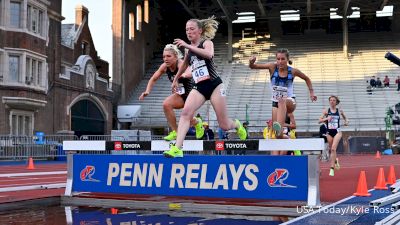 Penn Relays 2024 Schedule Day 2: Here Are Today's Events
Penn Relays 2024 Schedule Day 2: Here Are Today's EventsApr 26, 2024
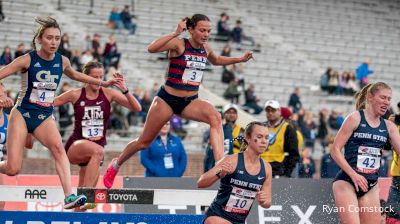 Penn Relays 2024 Results On Day 1: See Which NCAA Stars Won
Penn Relays 2024 Results On Day 1: See Which NCAA Stars WonApr 26, 2024
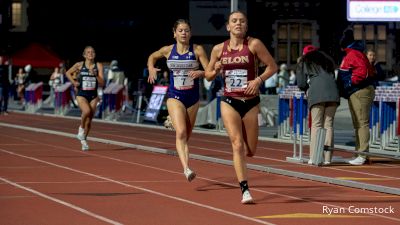 Jette Beermann Pushes To Win Women's 5000M Competition At Penn Relays
Jette Beermann Pushes To Win Women's 5000M Competition At Penn RelaysApr 26, 2024
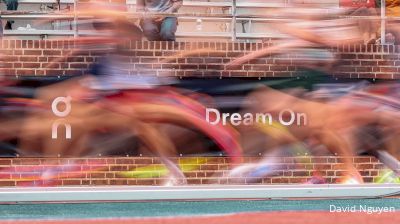 North Carolina Track And Field Stars Win At Penn Relays Year After Wreck
North Carolina Track And Field Stars Win At Penn Relays Year After WreckApr 26, 2024
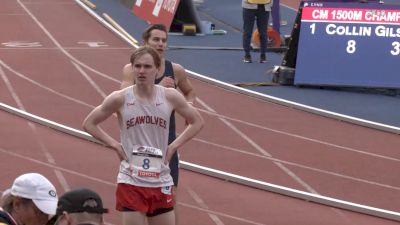 Collin Gilstrap Bursts From Fifth To Win College Men's 1500M At Penn Relays
Collin Gilstrap Bursts From Fifth To Win College Men's 1500M At Penn RelaysApr 25, 2024
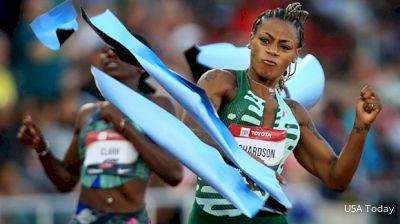 Sha'Carri Richardson, Christian Coleman Set For Wanda DL Shanghai/Suzhou
Sha'Carri Richardson, Christian Coleman Set For Wanda DL Shanghai/SuzhouApr 25, 2024
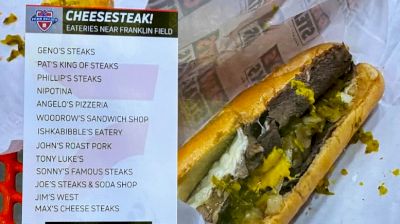 Penn Relays Location Is Also The Home To The Best Cheesesteaks In America
Penn Relays Location Is Also The Home To The Best Cheesesteaks In AmericaApr 25, 2024
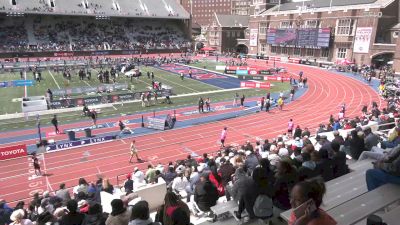 Pro Men's 4x100m Relay Special Olympics, Event 116, Finals 1
Pro Men's 4x100m Relay Special Olympics, Event 116, Finals 1Apr 25, 2024
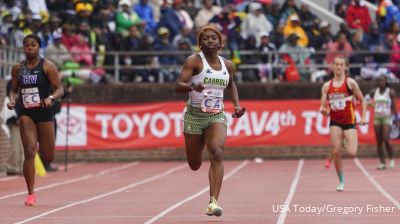 Penn Relays 2024 Schedule Day 1: Here Are Today's Events
Penn Relays 2024 Schedule Day 1: Here Are Today's EventsApr 25, 2024